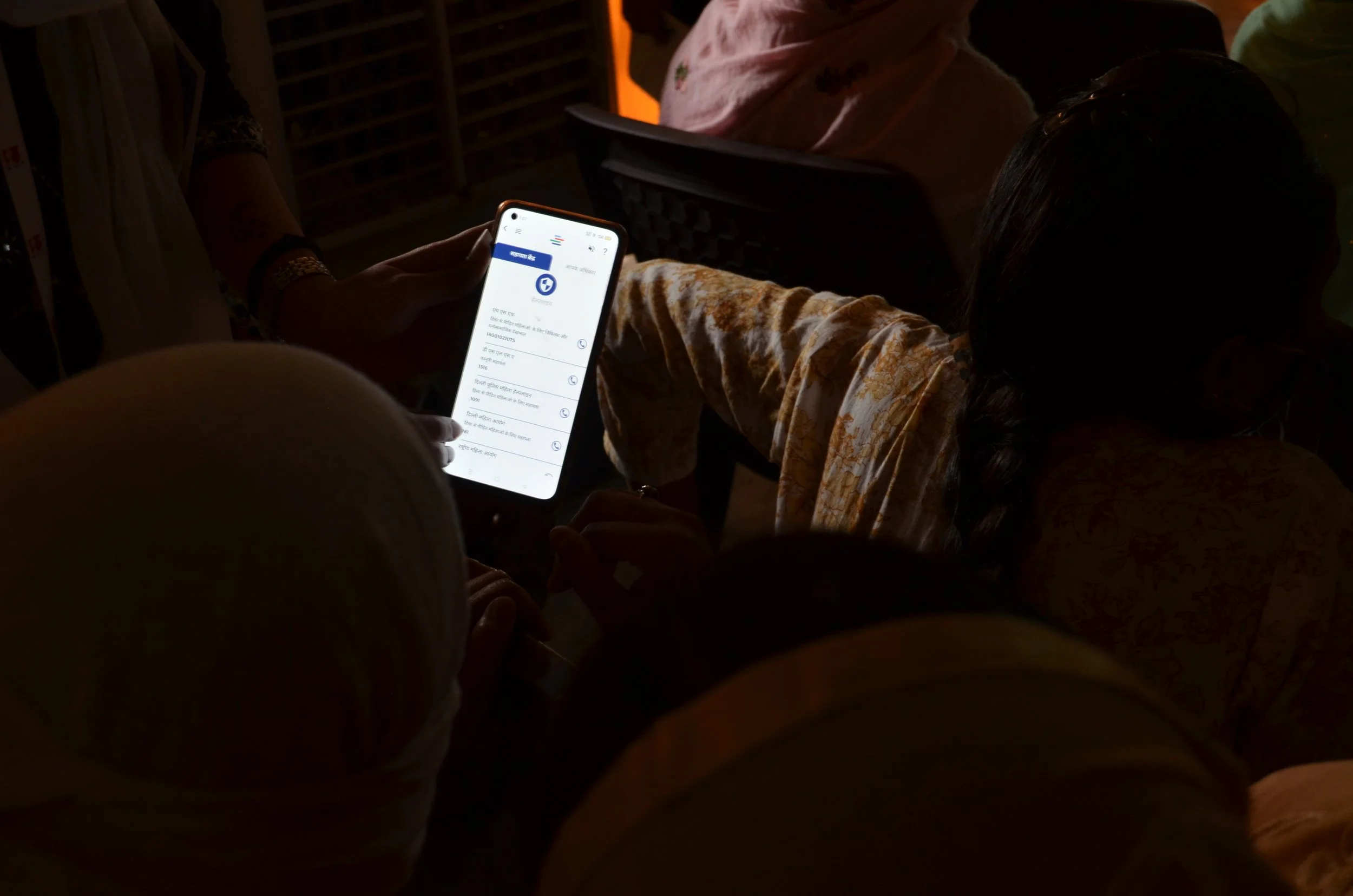
Digital Tools
Through our work MAP seeks to fuel transformative change in the current service delivery approaches. We aim to do this by developing community-specific digital platforms that localise support, connects migrants and displaced communities to service providers, and informs them about legal documentation, and the rights and schemes available to them under applicable domestic laws.
-

Talika Mobile App
Talika (which means "database" in Hindi) is a first-of-its-kind digital tool which seeks to facilitate access to legal aid and community support structures for survivors of Sexual and Gender-based Violence (SGBV), as well as raise awareness about what constitutes SGBV and laws available for redressal for migrant and forcibly displaced communities. Talika was developed by MAP in close consultation with these communities.
Through Talika intended users will be able to connect with local support structures—NGOs, ASHA/ anganwadi workers, government clinics, police stations, legal aid centres, etc., who are part of the Talika Network to seek assistance for their problems. It further provides information on the different forms violence against women can take, and the rights and remedies available to them.
The app, which launched on 8th March 2022, is presently available in Hindi and English and can be downloaded from Google Play Store.
To watch a demo of the video, please click here
-

Helplines
MAP’s Helpline number seeks to provide multi-sectoral support to intended users.
Users can choose to call the IVR Helpline, where they will be provided information about different forms of sexual and gender-based violence (SGBV) as well as the contact details of different resources they may reach out to: legal, medical or psycho-social, depending on their requirements.
Users may also reach out to MAP’s other helpline number, for assistance. The complaint and details of the complainant will be noted down by a member of the MAP staff, who will refer her to a relevant resource. This Helpline caters to women of the displaced community facing sexual and gender-based violence, as well as migrants facing such violence, and labour-related issues such as regarding wages, forced labour, unlawful retrenchment, etc.

